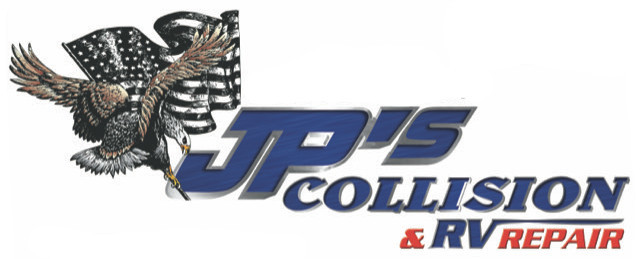- July 14, 2024
- By JP's Collision & RV Repair
BLOG
Understanding Trailer Weight Ratings: Ensuring Safe Towing
Towing a trailer can be an exciting adventure, whether you’re heading out for a camping trip or transporting heavy equipment. However, it’s crucial to understand trailer weight ratings to ensure safe towing and prevent accidents on the road. At JP’s Collision & RV Repair, we often see issues arising from improper towing practices, so we’ve put together this guide to help you navigate the world of trailer weight ratings.
Gross Vehicle Weight Rating (GVWR)
The GVWR is the maximum weight a trailer can safely carry, including its own weight and the cargo inside. This rating is determined by the manufacturer and takes into account the trailer’s frame, axles, tires, and other structural components. Exceeding the GVWR can lead to dangerous situations such as tire blowouts, brake failures, or even trailer collapse.
Gross Axle Weight Rating (GAWR)
The GAWR represents the maximum weight that can be supported by each axle of the trailer. This rating is crucial for maintaining proper weight distribution and ensuring that no single axle is overloaded. Overloading an axle can result in poor handling, increased tire wear, and potential axle damage.
Tongue Weight
Tongue weight refers to the downward force exerted by the trailer on the tow vehicle’s hitch. Proper tongue weight is essential for maintaining stability while towing. As a general rule, tongue weight should be about 10-15% of the total trailer weight. Too little tongue weight can cause trailer sway, while too much can affect the tow vehicle’s steering and braking.
Cargo Carrying Capacity (CCC)
The CCC is the maximum weight of cargo you can safely load into your trailer. To calculate this, subtract the trailer’s empty weight from its GVWR. It’s crucial to distribute the cargo evenly within the trailer to maintain proper balance and prevent overloading any specific area.
Tips for Safe Towing
1. **Know your numbers**: Always be aware of your trailer’s GVWR, GAWR, and CCC before loading it.
2. **Use a weight distribution hitch**: This can help distribute the weight more evenly between the tow vehicle and trailer, improving stability and handling.
3. **Regular maintenance**: Keep your trailer in top condition by regularly inspecting tires, brakes, and structural components.
4. **Proper loading**: Distribute cargo evenly and secure it properly to prevent shifting during transit.
5. **Practice safe driving**: When towing, allow for longer stopping distances, wider turns, and reduced speeds, especially in adverse weather conditions.
At JP’s Collision & RV Repair, we’re committed to helping our customers enjoy safe and worry-free towing experiences. If you have any questions about your trailer’s weight ratings or need assistance with repairs or maintenance, don’t hesitate to reach out to our experienced team. Remember, understanding and respecting your trailer’s weight ratings is not just about compliance – it’s about ensuring the safety of you, your passengers, and everyone else on the road.
LATEST POSTS
- How to Winterize Your RV: A Step-by-Step Guide
- September 1, 2024
- 5 Car Repairs You Should Never Attempt Yourself
- August 14, 2024
